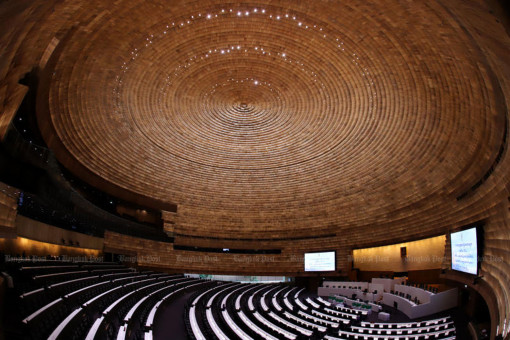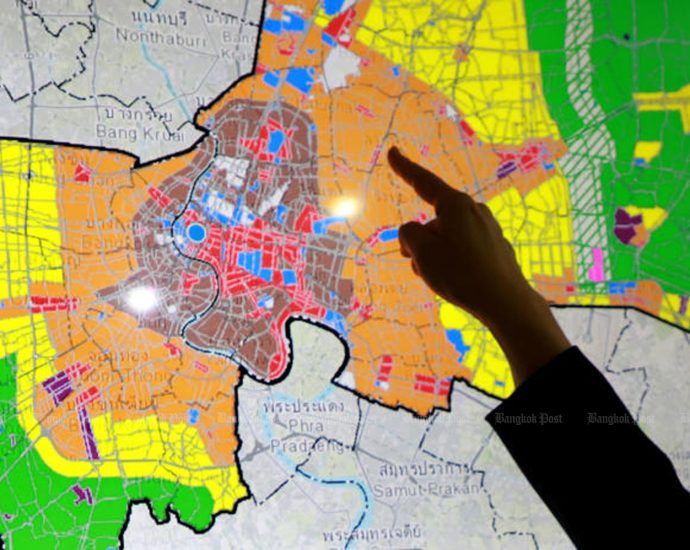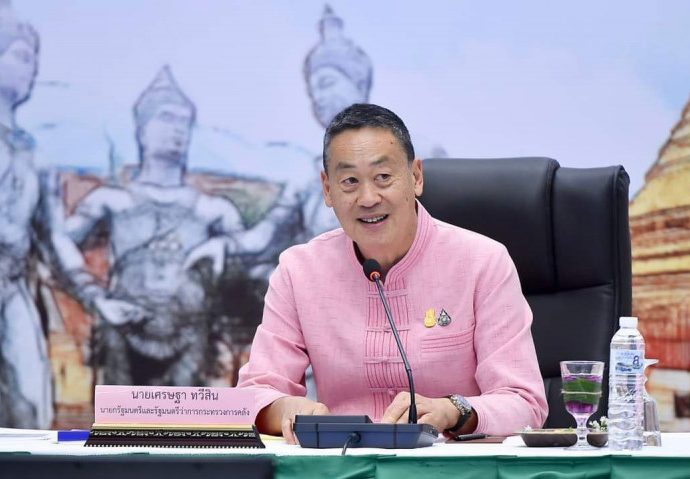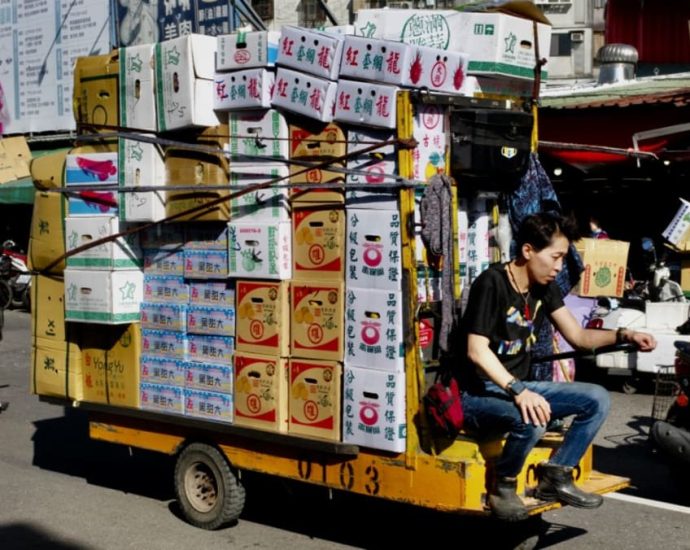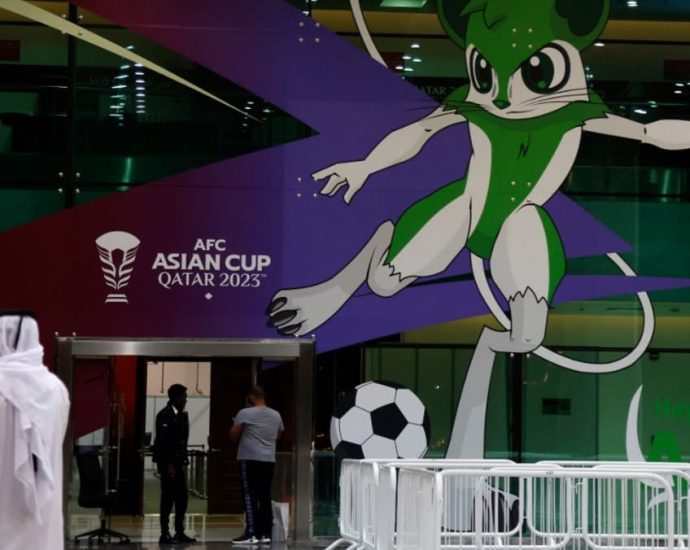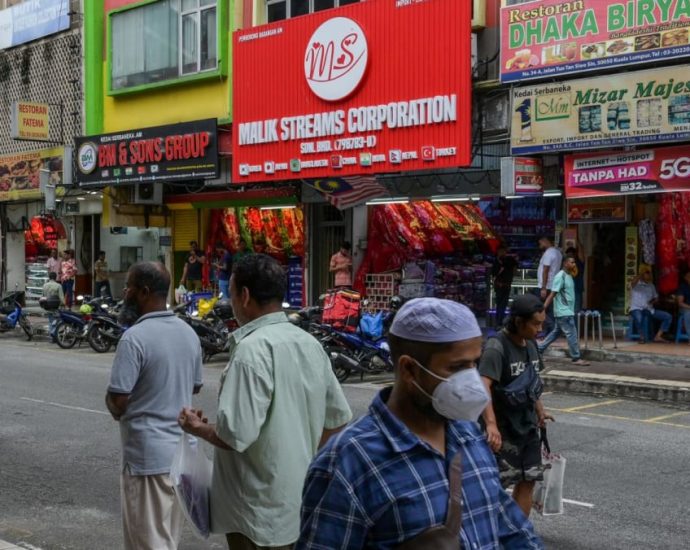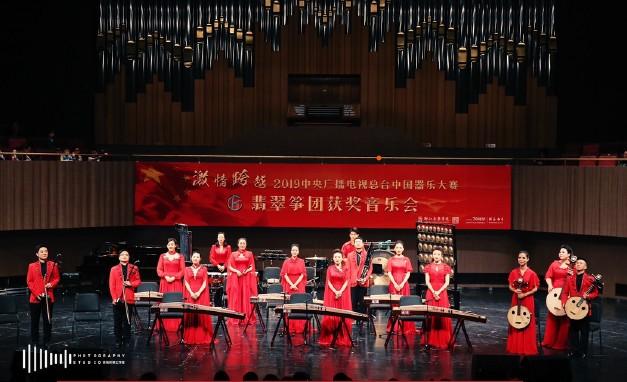3 ex-Bhumjaithai MPs banned for life for proxy vote
PUBLISHED : 12 Jan 2024 at 05:52

Three former Bhumjaithai Party MPs have been slapped with life bans prohibiting them from contesting elections or holding political office again for proxy voting during the second and third readings of the 2020 budget bill.
The Supreme Court ruled that Chalong Thoetwiraphong, a former Phatthalung Constituency 2 MP, Phumsit Khongmi, a former Phatthalung Constituency 1 MP and Natee Ratchakitprakarn, a former list MP, deliberately breached ethics by allowing other lawmakers to use their electronic voting cards during the bill readings between Jan 10-11, 2020.
Mr Chalong and Mr Phumsit were suspended as MPs on Sept 3, 2021, when the court accepted the case forwarded by the National Anti-Corruption Commission (NACC). Ms Natee lost her MP status in a false asset declaration case before the lawsuit was filed.

Chalong: Breached ethical code
In its ruling, the court said the three politicians failed to take any action that would prevent others from using their cards, investigate to find those who did or report the proxy voting to the House Speaker.
They claimed they had other engagements, but this did not justify them leaving their cards with others, and their arguments could not disprove the allegations of proxy voting, the court said.
The life ban against the three followed a Supreme Court Criminal Division for Political Office-Holders ruling last May in which each of the trio was sentenced to nine months in prison over the charge. They were released on bail pending an appeal.
The proxy voting questioned the validity of the 2020 budget bill, and the Constitutional Court ordered a fresh vote on the budget proposal.

Phumsit: Suspended as MP in 2021

Natee: Lost MP status for hiding assets
Chadchart defends city zoning plan
Critics blast it as being ‘pro-developer’
PUBLISHED : 12 Jan 2024 at 05:33

Bangkok governor Chadchart Sittipunt on Thursday defended the fourth revision of City Hall’s plan for the city, which has attracted public criticism for being “pro-developer”.
Responding to the backlash, Mr Chadchart said City Hall is always open to constructive criticism but added that some opinions may cause social disunity.
The governor said via Facebook that, by law, the plan needs to be revised every five years to support the city’s growth.
Responding to criticism, he said the new plan aims to enhance people’s living standards.
Public hearings are under way before the plan is submitted to a Provincial City Plan Committee for further processing.
At one hearing on Saturday, Korn Chatikavanij, former finance minister and representative of a civil group, said the plan seemed to emphasise making the city more dense rather than improving the quality of people’s lives. Mr Korn also questioned the reason for expanding 148 roads around the city that City Hall claimed would support the railway system.
He believed the road expansion would benefit the construction of skyscrapers in residential areas, as the law prohibits high-rise buildings from being built on small roads.
He also commented against an FAR (floor-to-area ratio) bonus, saying that City Hall needed to include the measure as a prime condition for developers to lessen the chance of corruption.
Sophon Noorat, head of the Rights Protection and Protection Department of the Thai Consumer Council (TCC), said that the plan tended to support development and did not focus enough on people’s quality of life.
Kongsak Sahamontree from the Urban Life Quality Protection Community Network said the plan lacks public participation. He suggested that people’s opinions be heard and the plan revised accordingly.
Wisanu Subsompon, a deputy Bangkok governor, said on Tuesday that the plan was written based on the city’s expansion and changing area usage to increase green space for the public.
Colour coding used in the plan was for the public’s benefit, not for certain groups of developers, he added.
The public has at least 90 days to comment on the plan before approval, said Mr Wisanu.
Electric mass transit seen as answer to PM2.5 woes
PUBLISHED : 12 Jan 2024 at 05:22

CHIANG MAI: Prime Minister Srettha Thavisin vowed to promote electric mass transit to help solve the nagging air pollution problem in this northern province.
During his two-day trip that ended on Thursday, Mr Srettha said the situation had seemingly improved since his previous visit on Nov 28, as the level of fine particulate matter smaller than 2.5 microns (PM2.5) was significantly lower in the provincial capital than last year.
This situation was seen to have improved since last April, when 302 hotspots were detected by the Geo-Informatics and Space Technology Development Agency (Gistda) alone, rendering the situation critical.
Air pollution has also impacted tourism in Chiang Mai as both local and foreign visitors did not want to visit the province due to the perceived health risk, Mr Srettha said, adding the government and local authorities have implemented solutions with short to long-term plans to show their commitment to tackling the problem.
The government, especially the Transport Ministry, is now planning to improve the province’s mass transportation system to help curb the PM2.5 caused by traffic congestion, the premier said, adding the mass transport system will also be convenient for tourists.
“Chiang Mai is a big city, but it doesn’t yet have rapid mass transit. It should have a monorail service, and that would benefit local commuters as well as help boost the economy,” he said.
During the trip, Transport Minister Suriya Jungrungreangkit proposed many development projects for the province’s transportation.
Among them was one to replace the present mass transport service or red pickup trucks known in Thai as songthaew daeng with EVs.
The minister also proposed an outer ring road to link Chiang Mai Airport to popular tourist sites in the city. The route would be about 53km long and would help ease congestion in the city, said Mr Suriya.
The ministry also plans to construct Lanna Airport, the second Chiang Mai airport, on an 8,000-rai site in the San Kamphaeng district of Chiang Mai and Ban Thi district in neighbouring Lamphun province.
Another plan would see the introduction of a tourist bus service to seven popular sites including a night safari, Royal Park Rajapruek and Queen Sirikit Botanic Garden.
Mr Suriya said the Land Transport Department would find tour bus operators for the service.
Mr Srettha said he agreed with the ministry’s projects to reduce congestion and the associated PM2.5.
“It is a well-planned policy. I believe it can help boost the public transportation service, and that will benefit the province’s tourism sector,” he said.
The premier also said he would contact Hun Manet, the prime minister of Cambodia, to discuss reducing PM2.5 caused by burning farmland.
Gistda reported at 8am on Thursday that 10 provinces were experiencing red-coded (seriously harmful) pollution levels.
Taiwan Votes 2024: As tariff spat with China widens, outcome of presidential election could reshape cross-strait trade
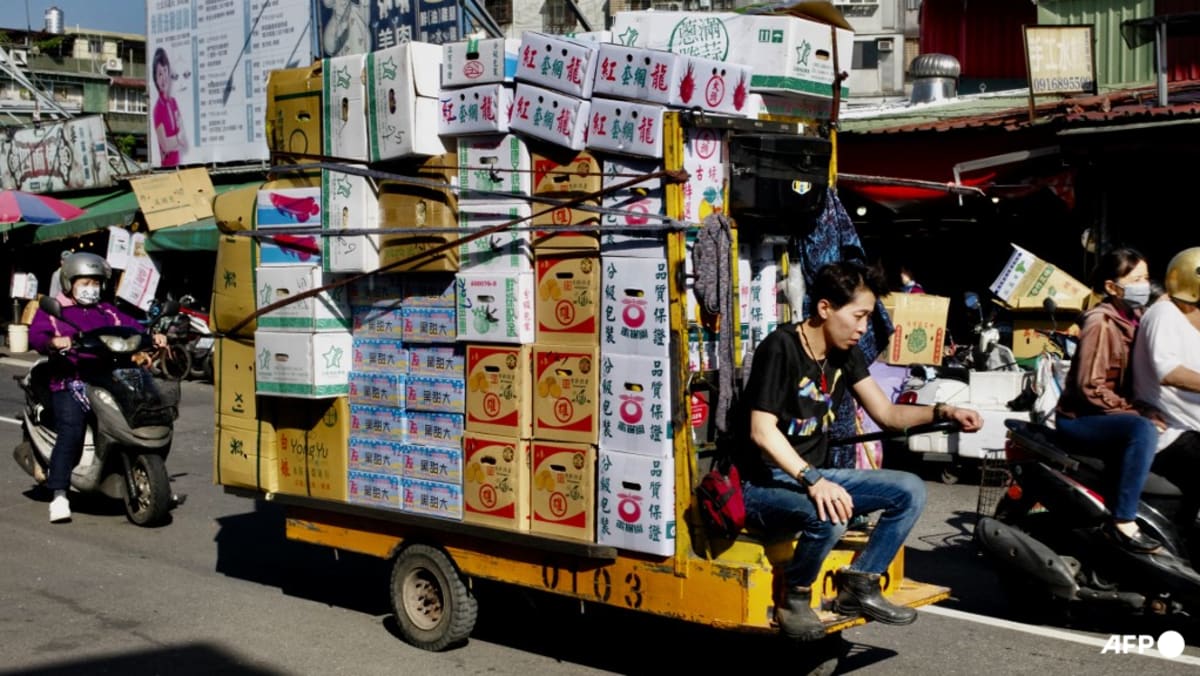
CHINA’S TRADE INVESTIGATION
Given the timing of China’s trade investigation and findings, it is widely seen as an attempt to sway the outcome of Taiwan’s election. But experts say there are also genuine economic reasons.
“China has two objectives. Of course, one is that they want Taiwan’s people to elect a government that will be advantageous to relations between both sides. The other objective is that some of China’s industries need the Taiwan market,” said Dr Du Zhen-hua, adjunct associate professor in global business at Chinese Culture University in Taipei.
China is Taiwan’s top trading partner, with cross-strait trade totalling US$224 billion last year. The island runs a trade surplus with its much larger neighbour, which accounted for about 35 cent of Taiwan’s exports in 2023.
The roughly 2,500 Chinese imports that Taiwan bans cover a wide range of goods including agricultural produce, natural and synthetic fibres, household electronics, steel products and vehicles. The bans are intended to protect domestic industries.
China’s report on its trade investigation contains estimates of the lost value of exports linked to Taiwan’s restrictions. According to relevant business associations, for example, mainland firms have missed out on exporting US$2.5 billion worth of fresh vegetables and US$170 million worth of fruits to the island.
“Taiwan is not a huge market, but it is at least a medium to large one, around the 20th largest economy in the world, and its import restrictions have hurt the development of Chinese businesses,” said Dr Du.
He added that China “has a basis” for its claims that the island violated ECFA, which came into effect in 2010 and committed both sides to gradually reducing or eliminating tariff and non-tariff barriers, as well as WTO rules on eliminating trade restrictions.
Commentary: Asian Cup kicks off in Qatar amid rising tensions in Middle East
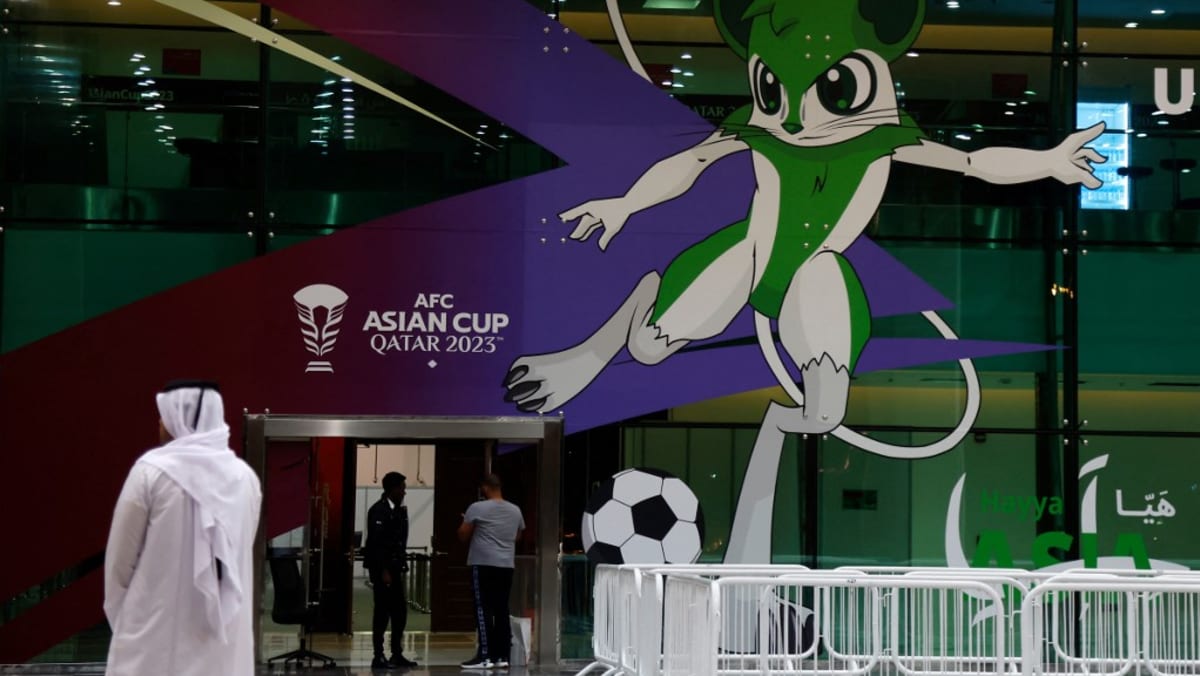
WHEN FOOTBALL AND POLITICS MIX
At the 2022 World Cup, Qatar established itself as a reliable host capable of successfully delivering events, a focal point for communicating a vision of Arab unity and a legitimate, trustworthy member of the international community. Officials in Doha will no doubt be seeking to do more of the same, especially given recent turbulence in the Middle East.
Over the last few years, Qatar has engaged in diplomacy between the United States and Taliban government in Afghanistan, arranged a hostage swap involving Iran and the United States, and been instrumental in negotiating the release of Gaza hostages in the Israel-Hamas war.
At the Asian Cup, Qatari officials will need to deploy their soft power and diplomacy to full effect, not least because of several teams that have qualified for the tournament.
The Gaza war has resulted in the deaths of several Palestinian football players and has posed challenges for the national team in preparing for the tournament. In its first match, the Palestinian team will face Iran – the country accused by Israel, the US, and their allies of being behind Hamas attacks, and of supporting Hezbollah in Lebanon.
At the 2022 World Cup, Iran drew the world’s condemnation as at the time women in the country were being arrested and beaten for refusing to cover their heads in public. This issue may resurrect itself once again, though the UAE’s appearance in the same group as the Iranians and Palestinians suggests more prominent issues may arise. Football and politics ideally should not mix, but very often they do.
Throughout the recent conflict, the UAE’s Etihad Airways has been one of the few international airlines that has continued to fly into Tel Aviv. This follows its normalisation of relations, in 2020, with Israel – a process from which several football deals emerged. Tournament host Qatar has always refused to follow suit, while Saudi Arabia has paused plans for normalisation following Israel’s military action in Gaza.
With this year’s Asian Cup taking place against a backdrop of such conflict and uncertainty, Saudi Arabia heads to it trying to establish a more progressive, responsible international reputation.
Nowhere has this been more evident than its investments in football. Five years ago at the Asian Cup, the kingdom came second in its group then exited in the round of 16 – an underwhelming performance compared to its smaller neighbours Qatar and the UAE (which reached the semi-final stage).
This time round, having spent heavily on overseas player acquisitions and its domestic league, Saudi Arabia will be hoping to play well and project a positive image of the country. The Asian Cup will not be a litmus test of the returns on its investment in football, but of how football in the kingdom is developing.
Raids in Kuala Lumpur targeting undocumented migrant workers highlight rising anti-foreigner sentiment in Malaysia
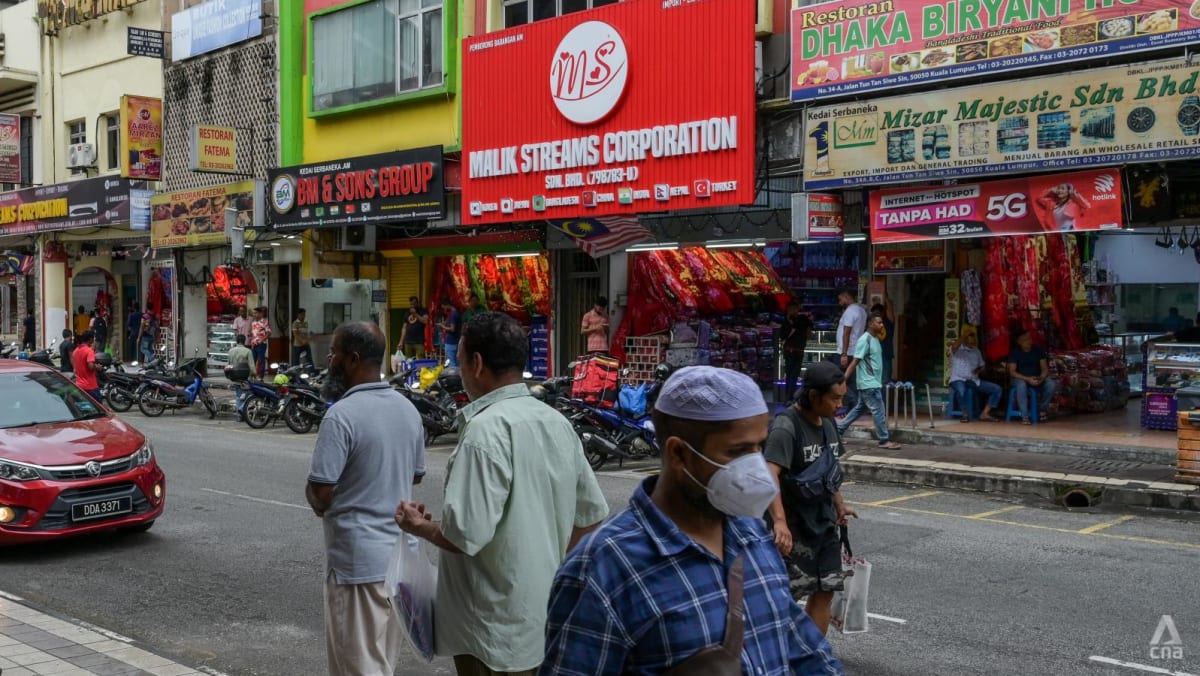
ANTI-IMMIGRANT SENTIMENT RISING, EXACERBATED BY SOCIAL MEDIA
In his videos, Mr Sophian – who has been accused of stirring up anti-immigrant sentiments – goes up to migrants who work in restaurants or grocers and questions them on their right to work in Malaysia.
He has been filmed in Kuala Lumpur, Melaka, and Penang among other places and has also ambushed areas that have large populations of Rohingya refugees.
Some of his videos posted on TikTok have racked up hundreds of thousands of views.
His actions have generally been supported by many people who tell him to keep up his work.
“We love our country, so this has to be done. The foreigners are getting big headed and taking advantage. Continue the good work,” read a comment on one of his videos taken at Jalan Silang.
Mr Sophian, who heads a non-governmental organisation called Surplus, told CNA that he was only against undocumented migrants in the country as well as businesses that were owned by them.
He also takes issue with businesses that hire migrants and place them in front-facing positions such as cashiers, claiming that this takes away jobs from locals.
“Every country has laws and any foreigner who wants to come into the country has to abide by the laws,” said Mr Sophian.
He further claimed that his “ambushes” have been ongoing for more than a year to put pressure on the government to take action.
“This is a critical issue and I want Malaysians to see what is really happening on the ground. If I make a complaint online, it will take a long time for any action to be taken,” he said, adding that he believed the raids in Jalan Silang for instance were conducted after his “ambushes”.
Commentary: Nothing to see in Malaysia’s alleged ‘Dubai Move’ to topple Anwar government – for now

IN THE MOOD FOR ANOTHER BACKDOOR GOVERNMENT?
The bigger issue is whether Malaysians (especially the Malays) are in the mood for another backdoor government. Many of them are struggling with the high cost of living, the weak economy and unemployment. But they have not indicated any strong reactions to the Dubai Move speculation.
Yet, if the unity government continues to neglect the anxieties of the people, the momentum may be strong enough that they might endorse a change of government. Within one year since taking power, Anwar’s popularity ratings have plummeted from 68 per cent to 50 per cent. While Malaysians are generally pleased with his handling of the economy, his management of race and religious relations remains wanting.
The Tanjung Piai by-election in 2019 remains fresh in many people’s minds. Barisan Nasional reclaimed the seat from PH with a huge margin. Then, the Mahathir-led PH government was struggling with race and religious issues and the perception of a Chinese-dominant Democratic Action Party (DAP) calling the shots in the government. The election was a precursor to Muhyiddin Yassin pulling Bersatu out from PH, citing the Malays’ declining support, and the Sheraton Move followed.
In addition, the DAP continues to repeat the same mistakes that led to PH’s downfall in March 2020. DAP MP Ngeh Koo Ham has suggested that a non-Muslim legal expert be included in a special committee at the federal level to strengthen the Syariah court system. Earlier, DAP veteran Lim Kit Siang remarked during a dialogue with Malaysian students in the United Kingdom that the Constitution does not exclude non-Malays from becoming prime ministers.
These trip-ups by DAP fall into PN’s playbook, which is bent on exacerbating racial and religious tensions. By doing so, PN, especially Parti Islam Se-Malaysia (PAS), recorded its best electoral performance in the country’s history in the last general and state elections.
Cops arrest Korean drug ringleader

PUBLISHED : 12 Jan 2024 at 04:00
A 29-year-old South Korean citizen who is believed to be the ringleader of a major drug trafficking network based in Thailand has been arrested in Bangkok’s Ekkamai neighbourhood, according to the police yesterday.
The man, identified only as Lee, was arrested at a condominium unit, where he was found to be in possession of 3.67 grammes of ketamine.
The suspect also tested positive for drugs, a police source said, adding he has been charged with possession of illegal drugs, as well as overstaying his visa.
Deputy commissioner of the Immigration Bureau, Pol Lt Gen Panthana Nutchanart, said Lee’s arrest followed the arrest of another South Korean national at Suvarnabhumi airport, who was found with 0.5kg of ketamine.
During questioning, he told police that he was hired by Lee to transport the drugs to South Korea, where they would be distributed to youngsters.
Pol Lt Gen Panthana said Lee is believed to be the ringleader of a drug trafficking network known as the “Ekkamai Gang”. Twenty-seven of its members have been arrested by South Korean authorities.
Interpol also issued a red notice for Lee, he added.
Citing information from South Korean authorities, Pol Lt Gen Panthana said Lee’s drug network is believed to have caused more than 1.5 billion baht in damages and that Lee was one of the most-wanted criminals in South Korea.
He said the police are expanding their investigation into Lee’s drug suppliers, some of whom are believed to have smuggled the drug from neighbouring countries.
According to the police, Lee has been charged with possession of a narcotic drug and overstaying his visa.
He first entered Thailand on May 6, 2022, as a tourist and never extended his visa when it lapsed or left the country, according to Immigration Bureau records.
Chinese New Year fest all set for Sunday
PUBLISHED : 12 Jan 2024 at 04:00
NEWSPAPER SECTION: News

A collaborative concert featuring top musicians from Thailand and China is set to take place this Sunday at Prince Mahidol Hall, Mahidol University, in celebration of the Chinese New Year festival in 2024.
“Sound of Celebration: Collaboration Concert for Happy Chinese New Year 2024” is being organised through a partnership between the Chinese Embassy in Thailand and the College of Music at Mahidol University.
The event will feature a collaborative performance by the Jade Guzheng Ensemble from Zhejiang Conservatory of Music, the Thailand Philharmonic Orchestra, and the Mahidol Symphony Orchestra of the College of Music at Mahidol University.
The concert will be presided over by Culture Minister Sermsak Pongpanit, inaugurated by Chinese Ambassador Han Zhiqiang, and attended by Khunying Patama Leeswadtrakul, chair of the Thailand Philharmonic Orchestra.
“This is not the first time that the College of Music at Mahidol University and the Thailand Philharmonic Orchestra have jointly organised celebratory events with musicians from China to strengthen cultural and musical friendships despite the recent challenges posed by the Covid-19 pandemic,” Khunying Patama said.
“However, this occasion is considered the largest collaboration, featuring diverse forms of collaboration, especially with the Jade Guzheng Ensemble from China. It represents a significant cultural exchange through the use of similar musical instruments for a joint performance,” said Khunying Patama.
Inquiry into pay for grade accusation

PUBLISHED : 12 Jan 2024 at 04:00
The Vocational Education Commission (VEC) has begun an investigation into accusations that a teacher at Roi Et Technical College gave every student in his class an F in a test and demanded money to change it.
A student claimed in a post on social media that the teacher failed everyone on Wednesday and demanded 400 baht to fix it. However, the price was later reduced to 200 baht, the post said.
The post said everyone ended up paying 200 baht each and uploaded pictures of transaction receipts.
It claimed that the teacher gave As and Bs to students who paid in previous tests.
Yotphon Wenukoset, VEC secretary-general, said a fact-finding panel was formed after it received information from the college about the allegation against the teacher yesterday.
Regarding administrative measures, the VEC has cancelled a course supervised by the accused and consulted with relevant officials, including a deputy director, department head and adviser at the college, to seek solutions, he said.
Students in the class were questioned over the matter, he said.
He said the VEC had instructed officials to finish the probe in seven days.

